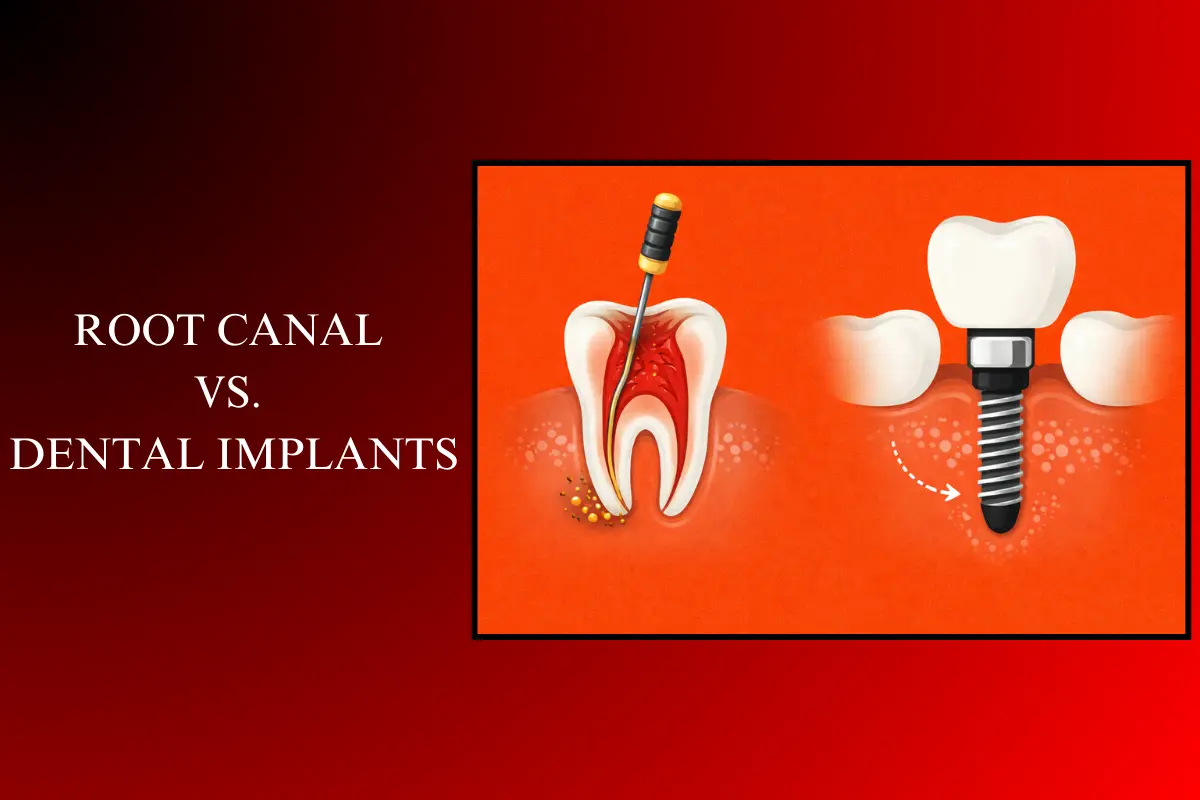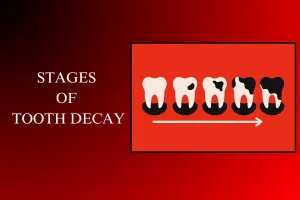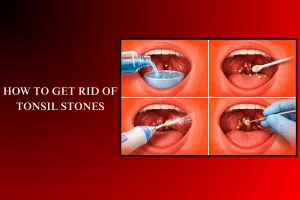When a tooth is severely damaged, infected, or missing, patients often face a difficult decision: Should you save the tooth with a root canal and crown, or replace it entirely with a dental implant? But which one is the better choice? The best option depends on your dental condition, lifestyle, and long-term goals.
This guide compares Root Canal vs. Dental Implants to help you understand what each procedure involves, who it’s best for, and how to make the right choice for your smile. At Night and Day Emergency Dentist, we offer both treatments based on your needs.
Book Your Appointment Now!Root Canal vs. Dental Implant: A Quick Comparison
| Factor | Root Canal | Dental Implant |
|---|---|---|
| Purpose | Save the natural tooth | Replace a missing/damaged tooth |
| Procedure | Non-surgical, cleaning inside the tooth | Surgical post + crown |
| Recovery Time | Few days | Several months (with healing) |
| Durability | 10–20 years (sometimes longer) | 20+ years, often lifelong |
| Cost | Lower upfront | Higher upfront cost |
| Bone Preservation | Minimal | Preserves jawbone health |
| Aesthetics | Natural-looking | Highly aesthetic and lifelike |
| Suitability | If a tooth is still restorable | If a tooth is missing or nonviable |
What Is a Root Canal?
A root canal is a procedure that removes infected or inflamed pulp from inside a tooth, then cleans, disinfects, and seals the space. Often, the tooth is restored with a crown to strengthen and protect it.
Root Canal Is Best For:
- Teeth with infected or damaged pulp but enough structure left to restore.
- Patients who want to keep their natural teeth.
- People who want faster recovery and less invasive treatment.
Limitations:
- The tooth can become brittle over time.
- There’s a risk of reinfection.
- It may not last as long as an implant, especially if not properly restored or maintained.
What Is a Dental Implant?
A dental implant is a titanium post surgically placed into your jawbone. It acts as a root for an artificial tooth (crown). Over time, the implant fuses with the bone, creating a strong and stable foundation.
Dental Implants Are Best For:
- Teeth that are too damaged to save.
- Patients who already had extractions or have missing teeth.
- Long-term replacement with excellent durability and function.
Limitations:
- Requires surgery and healing time (3–6 months for full osseointegration).
- Not suitable for everyone (especially with low bone density or uncontrolled medical conditions).
- Generally, more expensive upfront than root canals.
Key Considerations Before Choosing
- Severity of Tooth Damage: If your tooth is cracked, decayed, or infected but still structurally sound, a root canal may be all you need. However, if it’s broken below the gum line or has repeated infections, extraction and an implant may be more effective.
- Longevity: Root canals can last many years, but implants are known for their superior longevity. Implants do not decay and integrate with your jawbone, often lasting for decades with proper care.
- Healing & Procedure Invasiveness: Root canals are quicker and less invasive, done in 1–2 visits. Implants involve surgery, healing time, and multiple appointments — but with long-term payoff.
- Cost: Root canals and crowns are often more affordable upfront. Dental implants involve surgical fees, implant materials, and follow-up care, which increase the cost, though they may prove more cost-effective in the long run.
- Overall Health & Bone Quality: Some medical conditions or insufficient jawbone density can make implants more complicated. Your dentist might recommend a bone graft or an alternative solution if implants aren’t feasible.
What Dentists Usually Recommend?
- If the tooth can be saved, a Root canal is generally the first recommendation.
- If the tooth is missing or non-restorable, A dental implant is often the best long-term solution.
- If infection is recurring, A previously treated root canal that keeps failing may warrant implant replacement.
FAQs – Root Canal or Dental Implant
Conclusion
There is no universal answer — it depends on your tooth’s condition, your budget, and how quickly you need results. For many patients, saving the natural tooth is the ideal outcome. But if that’s not possible, a dental implant offers a permanent, functional alternative that looks and feels like the real thing.
At Night and Day Emergency Dentist, we can assess your situation quickly and provide expert advice on whether a root canal or dental implant is the better choice. Whether you’re in pain, unsure about your options, or want to explore the best long-term solution, we’re open 7 days a week to help you make an informed decision.




